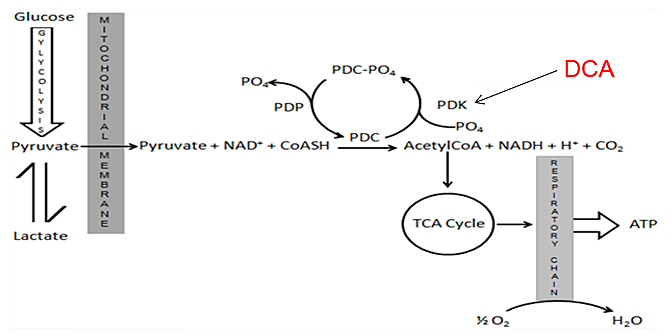Promising Potential New Treatment for Patients with Sepsis, Cancer or Genetic Conditions

Cells need energy to live, which they get from adenosine triphosphate. Pyruvate dehydrogenase complex is needed to form adenosine triphosphate, so in turn this mitochondrial enzyme is essential to life. Numerous disease processes have the ability to deactivate pyruvate dehydrogenase complex, thus preventing cellular glucose oxidation. Researchers at UF Health, the Southeast’s most comprehensive academic medical center, have found a potential target for treating the problem that is showing great promise.
Peter Stacpoole, M.D., Ph.D., a professor of medicine, biochemistry and molecular biology at the University of Florida in the Division of Endocrinology, Diabetes and Metabolism, and his fellow researchers have been evaluating the potential utility of an investigational drug called dichloroacetate in the treatment of sepsis, cancer or genetic conditions. For more than three decades, dichloroacetate has been tested in a wide range of diseases and conditions, including Type 2 diabetes, myocardial ischemia and congenital lactic acidosis.
In their clinical trials, Stacpoole and colleagues have demonstrated that dichloroacetate is effective in promoting immunometabolic and organ homeostasis in sepsis, and in targeting the pyruvate dehydrogenase complex/pyruvate dehydrogenase kinase axis in cancer. They have also investigated development of a sensitive and rapid clinical genetic screening test for patients who may be treated with dichloroacetate.
Stacpoole and colleagues have shown that dichloroacetate reactivates pyruvate dehydrogenase complex and increases mitochondrial oxidative bioenergetics in isolated hepatocytes and splenocytes. They have also shown that dichloroacetate promotes vascular, immune and organ homeostasis, accelerates bacterial clearance and increases patient survival.
UF Health is currently working in collaboration with researchers at Wake Forest University and Washington University to determine the long-term implications and potential benefits for dichloroacetate in patients who are critically ill, patients with acquired diseases and pyruvate dehydrogenase complex inhibition, and children with enzyme mutations.